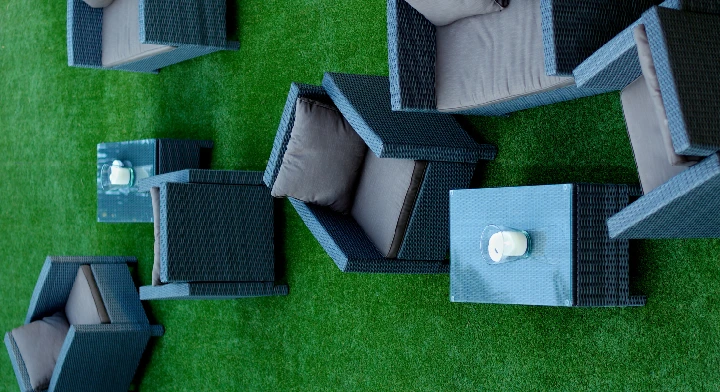
- Afrikaans
- Arabic
- Belarusian
- Bengali
- Czech
- Danish
- Dutch
- English
- Esperanto
- Estonian
- Finnish
- French
- German
- Greek
- Hindi
- Hungarian
- Icelandic
- Indonesian
- irish
- Italian
- Japanese
- kazakh
- Rwandese
- Korean
- Kyrgyz
- Lao
- Latin
- Latvian
- Malay
- Mongolian
- Myanmar
- Norwegian
- Persian
- Polish
- Portuguese
- Romanian
- Russian
- Serbian
- Spanish
- Swedish
- Tagalog
- Tajik
- Thai
- Turkish
- Turkmen
- Ukrainian
- Urdu
- Uighur
- Uzbek
- Vietnamese
Benefits of Artificial Grass for Dogs and Managing Pet Urine Issues
Dec . 01, 2024 19:25 Back to list
The Impact of Dog Urine on Artificial Grass What Every Pet Owner Should Know
Artificial grass has gained immense popularity in recent years, especially among pet owners. It offers a low-maintenance, aesthetically pleasing alternative to natural lawns. However, one of the significant concerns for dog owners considering artificial grass is how dog urine affects its longevity and appearance. This article explores the relationship between dog urine and artificial grass, along with some best practices for maintaining a pristine synthetic lawn for your beloved pets.
Understanding Artificial Grass
Artificial grass is primarily composed of synthetic fibers designed to mimic the look and feel of real grass. It is often made from materials like polyethylene, polypropylene, or nylon. This durability makes it an attractive option for dog owners; however, the interaction between artificial grass and dog urine can lead to issues if not properly managed.
The Effects of Dog Urine on Artificial Grass
1. Discoloration One of the most noticeable effects of dog urine on artificial grass is discoloration. The nitrogen in urine can cause the fibers to fade or turn yellow over time, particularly in areas where dogs frequently urinate. The intensity of this discoloration often depends on the dog’s diet and hydration levels. Diets high in protein tend to result in more concentrated urine, leading to quicker discoloration.
2. Odor While artificial grass is designed to be more odor-resistant than natural grass, accumulated urine can still lead to unpleasant smells if not dealt with promptly. Microbes can thrive in moist areas, producing ammonia and other odor-causing substances.
3. Bacteria and Germ Growth Although artificial grass is not organic and does not support the same biological breakdown processes as natural grass, it can still harbor bacteria due to dog urine. This can be a concern for pet owners, especially those with young children or immunocompromised family members.
Maintaining Artificial Grass with Dogs
dog wee and artificial grass

Fortunately, there are steps pet owners can take to maintain their artificial grass and mitigate the impacts of dog urine
1. Regular Rinsing One of the simplest and most effective ways to prevent urine buildup and odor is to rinse the affected areas with water regularly. A quick spray with a garden hose can dilute the urine and help wash away buildup.
2. Dog Diet Management Monitoring and modifying your dog's diet can significantly reduce urine concentration. A diet with balanced nutrients, including high-quality protein and adequate hydration, can lead to less potent urine.
3. Use of Enzymatic Cleaners There are specialized enzymatic cleaners designed for artificial grass that can help break down urine compounds, eliminating odors and stains. These cleaners are essential for maintaining the integrity and appearance of synthetic turf.
4. Strategic Placement of Urination Areas Designing a designated urination spot can help minimize the exposure of the entire lawn to urine. You can train your dog to use a specific area, ideally located on a separate section of the yard or using a patch of real grass.
5. Install a Drainage System Some advanced artificial grass products come with built-in drainage systems. These allow urine and water to drain through the base, minimizing the possibility of pooling and odor.
6. Routine Maintenance Regular grooming, such as brushing the grass and removing debris, is essential to ensure the longevity and appearance of your turf. Periodically inspect for any damages or areas that might require special attention.
Conclusion
While dog urine can indeed pose a challenge for artificial grass, understanding its effects and implementing proper maintenance strategies can keep your synthetic lawn vibrant and odor-free. With these practices in place, you and your furry friend can enjoy a beautiful yard without compromising on comfort or aesthetics. As synthetic turf technology continues to improve, pet-friendly options will only become more accessible, allowing for a hassle-free outdoor experience for all.
-
The Benefits of Artificial Turf for Indoors
NewsJul.15,2025
-
How Artificial Grass Suppliers Ensure Quality Products
NewsJul.15,2025
-
Artificial Grass and Pets: A Space for Relaxation
NewsJul.08,2025
-
Balcony & Outdoor Decoration with Artificial Grass
NewsJul.08,2025
-
Best Indoor Artificial Grass for Home
NewsJul.07,2025
-
Best Pet Turf for Dogs: Safe & Durable Artificial Grass Options
NewsJul.07,2025
Products categories









